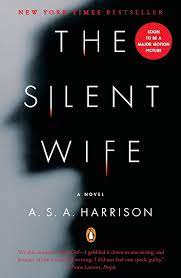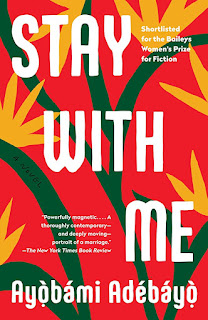If you knew the day you would die, how would that change the way you live? Chloe Benjamin explores this idea in her second novel about four siblings who, in New York in 1969, learn just that. Simon, Klara, Daniel, and Varya sneak off to see a fortune teller whose gift is knowing your death date. After they each learn how long they'll live, we hear about their separate stories.
At 17, Simon leaves New York for San Francisco with his sister Klara, who is 19. Klara has dreams of becoming a magician, following in the footsteps of her grandmother. Simon doesn't realize his dreams until he moves to San Francisco, where he can live more openly as a gay man. He begins dancing at a club, and then takes ballet in order to improve his dancing. There he meets Robert, and they live as a couple in the height of the AIDS epidemic in the 1980's.
Klara, also in San Francisco, pursues her dream of performing magic shows. She starts from the ground up, with simple card tricks and illusions and works her way up to performing at the Mirage in Las Vegas.
Daniel becomes a doctor, and meets an FBI agent who is asking questions about the woman Daniel and his siblings met so many years ago.
Varya works in research, trying to find out the key to a long life. But her research is interrupted when she meets someone asking questions about her past.
Although their lives diverge and seem to separate pretty quickly after their childhood, they still deal with the same issues - like their mother - Who will stay home to care for her? Who deserves her love the most? Will they break free of the superstitions and rituals they see her carry out? They also each have a dream that is sidelined in some way - whether it's mental illness, disease, revenge, or their own self. And together they deal with the knowledge of their fate and the question of whether knowing this directed their life choices, or if their life choices brought them closer to their fate.
I listened to the audio book, so I'm not sure I can separate how much was the writing versus the narrator, but this book had a lyrical quality to it that was transcendent. I loved reading about each sibling and was disappointed when one person's section ended, but then found myself equally enraptured with the next. Each person's story was interesting in and of itself, but the bigger questions raised about things like fate and legacy took it to another level.
















.jpg)







